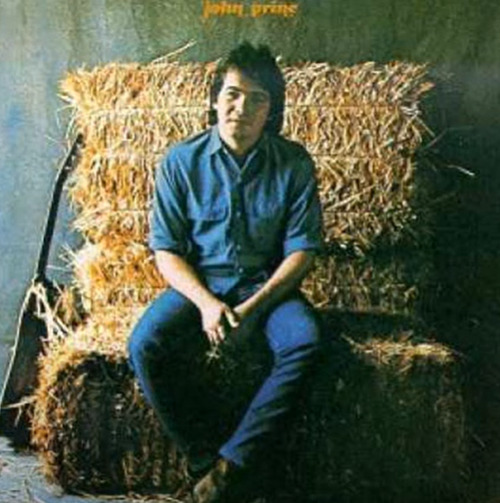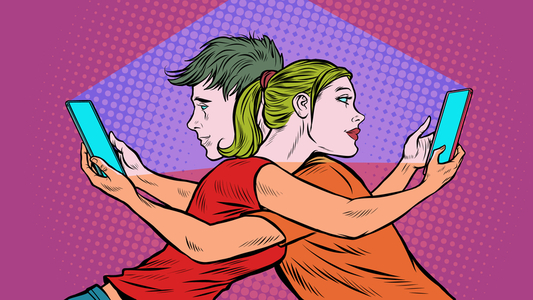-original-20250616123328.jpg)
One of my favourite songs ever written about the tragic state of human loneliness is Hello in There by the late, great John Prine, a master storyteller and musical poet. Sadly, Prine passed away in April 2020 due to complications from COVID-19 at the age of 73, his death a symbol of a world locked down and disconnected, leaving behind a decades-long legacy of crafting tender poetic songs that captured the beauty and sorrow of everyday life in the USA.
His words still echo with raw truth and vulnerability, especially in this verse:
So if you're walkin' down the street sometime
And spot some hollow, ancient eyes
Please don't just pass 'em by and stare
As if you didn't care
Say, "Hello in there, hello"
Click to play this beautiful song here if your heart needs a gentle tug

That image, of a person who’s turned inward, quietly fading into the background of everyday life, is one that feels just as true now as it did decades ago when Prine first put pen to paper. And perhaps more than ever, it reflects something deeply human and deeply hurting.
We don’t often talk about loneliness in Australia. Maybe we mistake it for shyness or assume everyone else is doing just fine. But the truth is sobering: we are in the grip of a long-standing, and increasingly concerning, epidemic of loneliness.
Research suggests that one in every three to four Australians has experienced loneliness, and this isn’t just a passing feeling. For many, it’s a lingering ache that shapes their daily life.
According to Meta AI, loneliness, especially among younger Australians has reached epidemic proportions. The issue has been significantly worsened by the COVID-19 pandemic, which, through lockdowns and social restrictions, pulled people even further apart from one another.
Studies by the Australian Institute of Health and Welfare and the Royal Australian College of General Practitioners (RACGP) back this up. Here are some of the key factors contributing to the rise:
Thankfully, people are working to address the problem, even if awareness is still low.

Let’s pause on the numbers for a moment, because behind each statistic is a person—a story:
And this isn't just about being alone. You can feel desperately lonely even in a marriage. META AI explains: Feeling lonely in marriage can stem from various factors, including a lack of emotional connection, misaligned expectations, insufficient communication, or a decline in shared activities. Addressing this often requires open communication, setting realistic expectations, and working together to rekindle intimacy and connection.
So there you have it, more than a quarter of Australians are being quietly undone by loneliness.
We, humans, are social beings by nature. Yet here we are—more “connected” than ever through screens and apps, and somehow more isolated. The technology that promised to keep us close has, in many ways, replaced presence with pings, and depth with scrolls. Sad, but it doesn’t have to stay that way.
So next time you pass that lonely person; or even better if you know of a lonely relative friend or neighbour, visit them and say Hello in there – hello!!
You never know how much it might mean.
Author: Magnum
For: Langtrees.com
TalkinSex Forum | Perth Escorts | Sydney Escorts | Melbourne Escorts | Brisbane Escorts | Darwin Escorts | Adelaide Escorts | Hobart Escorts | New Zealand Escorts

“Loneliness doesn’t pick sides. It taps teachers, tradies, CEOs, single mums, married dads. You can be surrounded by people and still feel like you’re fading at the edges. In Australian surveys, it’s common—roughly one in three adults say they feel lonely—and long-term studies tie chronic loneliness to poorer mental and physical health over time. You don’t deserve it. No one does. There’s a version of this that lands hard on men in long marriages. Decades of showing up. Bills paid. Kids fed. Hands busy. Heart patient. He asks for closeness, says it plainly, tries again, and nothing changes. After a while the anger burns off. What’s left is quiet. He adapts to deprivation, learns to need less than he actually needs, and calls that peace. It isn’t. It’s hollow. What becomes of that man? Some keep living small, decent lives, silently—decades of “I’m fine,” while something dims. Some walk away and pay the price—financially, socially, with their kids—because staying felt like disappearing. And some drift into darker places where the question isn’t “How do I live?” but “Why?” If that’s you or someone you love, please don’t try to carry it alone. In Australia you can reach Lifeline on 13 11 14 or Beyond Blue on 1300 22 4636. A voice on the line can be the first step back to air. I’ve spent a lot of recent hours in non-intimate, work-only time with the Langtrees ladies—writing, learning, building things together. Some days I walked in tired and walked out lighter because a few of them radiate something rare: warmth that lands in your nervous system. When a person shows that kind of loveliness at the soul level, you don’t forget it. For an hour, the world gets kinder. That matters. I’m curious what this community thinks. If you’ve lived that quiet emptiness: • Did you stay and somehow rebuild the bridge? How? • Did you leave and, over time, make a better life for everyone involved? • What stopped you from disappearing into the dark when it felt easier to do nothing? Drop your stories, your cautions, your small practices that helped—rituals, agreements, therapy, chosen family, time apart, whatever kept you human. Someone reading this needs what you’ve learned. Be gentle with the lonely, wherever you meet them—on a street, in a foyer, at home. Sometimes one good hour can tilt a whole week back toward the light.”

“At Langtrees VIP Canberra, we see how many people are quietly carrying loneliness. It's not always about physical connection, sometimes it’s just the need to feel seen, heard, and valued. Even the smallest gesture, a kind word or moment of genuine attention, can mean more than we realise. Even a moment of company and connection really does make a difference.”

“I think social media has a lot to answer for loneliness, life moving online. It doesn't matter how many online friends you have got, if you can go days without being with another person face to face and share physical space then you are lonely. The physical presence of another person is a necessary antidote to not feeling lonely.”

“Thank you for sharing this important blog, Magnum. It is essential to recognize that loneliness is a natural aspect of life that we all face as we age. The impact of the pandemic on lives in Australia is deeply concerning and cannot be overlooked. This struggle is not limited to one region; many around the globe are still grappling with the loss of their loved ones. We must stand together and support one another during these challenging times. It is our responsibility to foster connection and resilience in our communities.”

“Another great read Thanks Magnum?”

“Australia's epidemic of loneliness reflects a growing need for enhanced social connections and mental health support in an increasingly isolated society.”

“Loneliness gradually becomes a habit and once it does it becomes very difficult to get away from! Thanks to this blog and Magnum for highlighting this topic since this is not discussed often! Also thanks for the song reference, I heard it and really liked it as well. keep writing more!”